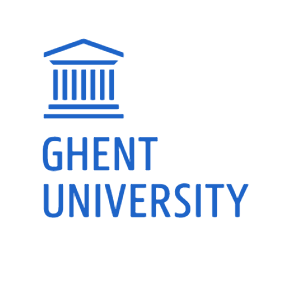
USES OF MODERNISM
GHENT, 18-24 September 2023
Call for panels and roundtables
Deadline: 15 October 2022
From the mid-1990s onwards new approaches to the study of Modernism and its cultural, geographical and chronological boundaries have been developed. This new trend in Modernism studies marks a turning point in thirty years of debates on the categories of High Modernism, Postmodernism and Late Modernism that also questions Western-centred notions of Modernism.
The increasing awareness that modernity and Modernism are fraught with imperialist and (neo)colonial Western-centred perspectives has spurred numerous scholars to critically explore multiple perspectives on the boundaries of Modernism in the late 20th and early 21st centuries, and the transcultural, transnational and planetary extension of Modernism as a socio-cultural category (Greenblatt, Gunn, eds, 1992; Mao, Walkowitz, eds, 2006; Stanford Friedman, 2005 and 2006; Ramalho Santos, Sousa Ribeiro, eds, 2008; Somigli 2012; Connor, 2016; Havot, Walkowitz, eds, 2016; Kalliney, 2016; Moody, Ross, eds, 2020).
This conference seeks to bring together scholars from various disciplines and specialisations to reconsider the Modernist concept in the wake of the post-colonial and global turn in the humanities and social sciences. More specifically, it intends to investigate the category of Modernism from a global, interartistic, interdisciplinary perspective, as well as to discuss its contemporary uses and values within the on-going decanonization and decolonization of research and teaching agendas.
The conference invites panels on the following topics, although related topics not included in this list might be considered:
- Local/Regional/National Modernisms
- Transnational/Transcultural/Global Modernism
- Late Modernism
- New Modernisms
- Modernism and World Literature
- Literary Modernism and the other arts / Modernism and Intermediality
- Modernism and religion/spirituality
- Critical evaluations of the centre-periphery dichotomy
- Political Uses of Modernism / Modernism and Politics
- Modernism and socio-political critique
- Modernism, identity and intersectionality (gender, race, class, nationality)
- The Hypermodern Condition and Hypermodernism, Metamodernism
- Teaching Modernism today
Proposal guidelines:
- Paper panels: 3-4 papers around a central topic
- Roundtables: discussion-based sessions of 4 to 7 discussants around a specific topic
- Each panel or roundtable should not exceed 90 minutes and leave at least 30 minutes for discussion
- Proposals for consecutive panels and roundtables are also welcome
- Proposals for individual papers will be accepted at a later stage
—
Interested scholars are encouraged to send their panel or roundtable proposals, including a short bio and 300-word statement of the topic and goals of the session, to modernism@ugent.be by 15 October 2022.
For further information, please contact modernism@ugent.be
Organizing committee: Eline Batsleer (Ghent University), Sarah Bonciarelli (Ghent University), Guylian Nemegeer (Ghent University), Mara Santi (Ghent University), Tiziano Toracca (University of Udine), Massimiliano Tortora (Sapienza University of Rome), Bart Van den Bossche (KULeuven), Cedric Van Dijck (Ghent University), Birgit Van Puymbroeck (Vrije Universiteit Brussel-UGent).